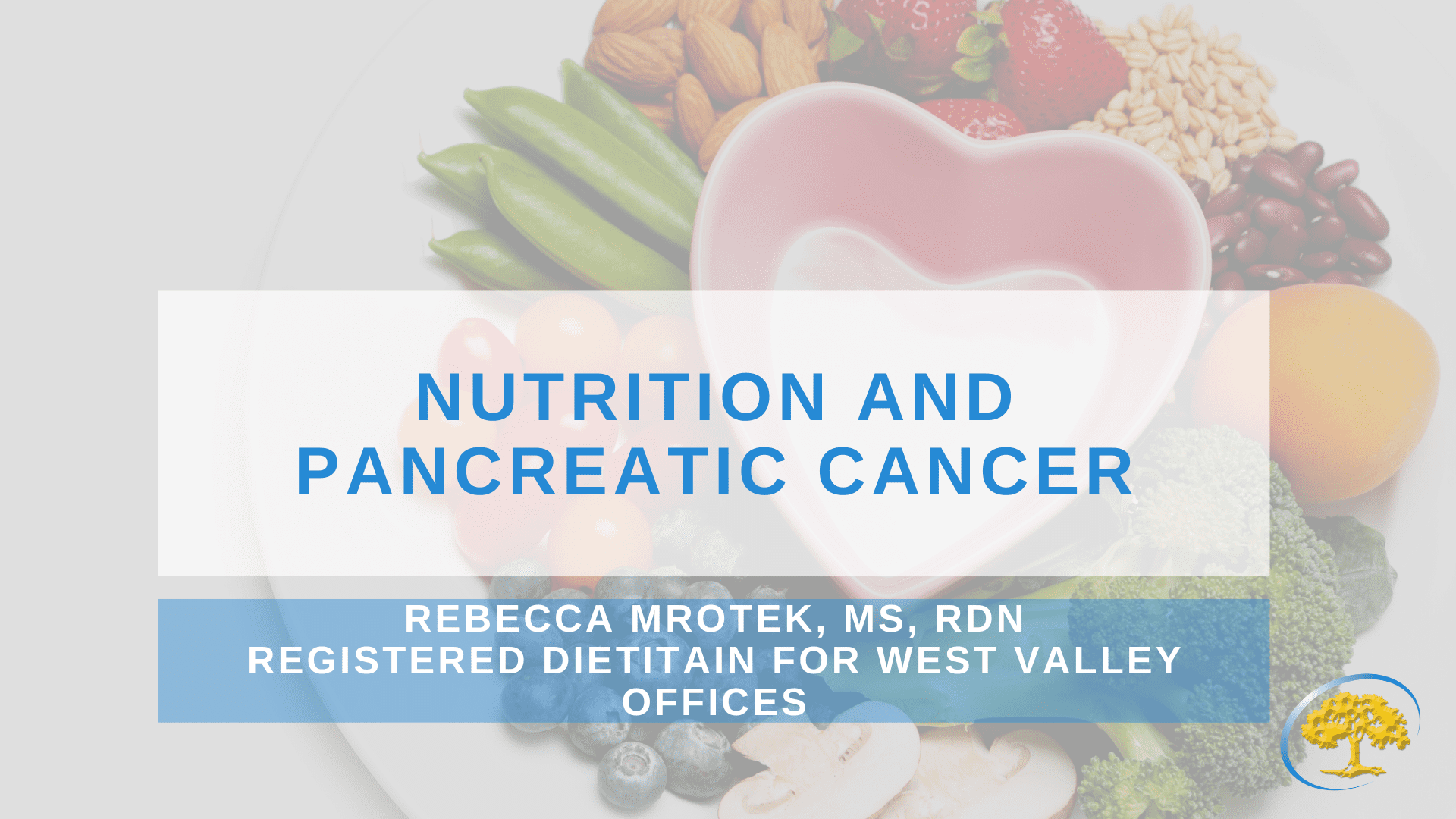
Posted 2 years ago
Nutrition and Pancreatic Cancer
If you suffer from pancreatic cancer, most likely you have experienced one or more symptoms of nausea, weight loss, diarrhea, stomach pains, dehydration, and/or malnutrition. Anyone fighting cancer is at high risk for all these symptoms, but those with pancreatic cancer are at an increased risk of these nutrition-related consequences. There are specific adjustments to the diet and additional medications that can help manage these effects. It is important to be aware of these changes to allow for early intervention.
Pancreatic cancer has the second highest prevalence for malnutrition with stage IV cancers and the second highest prevalence for stage I-III cancers. Malnutrition can appear at all stages and can vary in severity based on the individual’s disease state. The pancreas is responsible for releasing enzymes (lipase, protease, amylase) that digest food, specifically fat. Dependent upon the type and size of meals, the number of enzymes released can be 480,000-960,000 lipase units. When cancer is present, those enzymes can be drastically reduced, leading to negative symptoms when dropped by 5-10%. Malabsorption of fats can lead to frequent diarrhea, stomach pains, early satiety, cramping, and weight loss. In addition to fats, the pancreas releases insulin to help digest carbohydrates. Managing blood sugar levels amid weight loss can be very difficult and adds on to the aggressive nature of this cancer.
Even with diet changes, some may still feel the effects of fewer enzymes. There are pancreatic enzyme replacements that can help with the digestion of food if taken while eating. If you have any of the symptoms listed above, this may indicate pancreatic insufficiency and enzyme replacement therapy may be appropriate for you. Pancreatic enzyme medicine mimics the action of the pancreas by providing you with a high amount of the same enzymes released normally when food enters the body. Over the counter digestive enzymes are usually not strong enough to relieve symptoms and are at higher risk of contamination if not third party tested.
It is critical to start with dietary changes before symptoms present. To help with energy levels during treatment and blood sugar control, it is best to consume high fiber foods and low amounts of added sugars. Working with a dietitian may be necessary to help with portion sizing and timing of meals if blood sugar is uncontrolled. Here is a short summary of a pancreatic-friendly diet:
Lean Protein with every snack and meal: skinless white meat poultry, fish, chickpeas, lentils, beans, nuts and seeds, low-fat dairy products
8-10 colorful servings of vegetables
30-45g of fiber a day (vegetables, whole grains, beans, and legumes)
Healthy fats: cold-water fish, nuts and seeds, avocado, olive oil
Limit processed foods
Keep added sugars to 25 grams per day
If needing more assistance with weight loss or understanding what is best to eat when going through cancer treatment, please reach out to one of our dietitians on staff and we will be happy to help you.
Please ask your Ironwood Cancer & Research Centers provider for a referral to see our dietary counselors.
